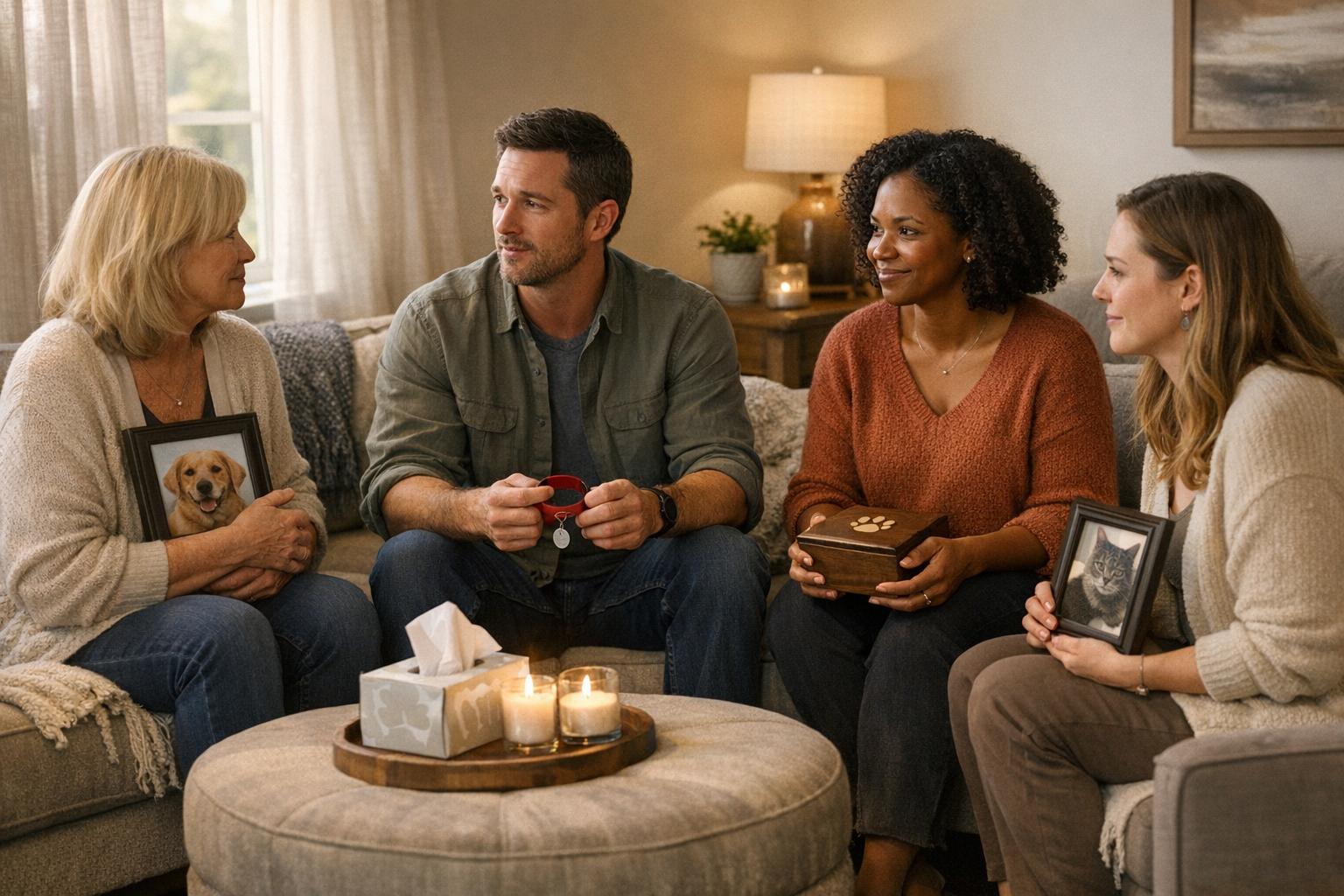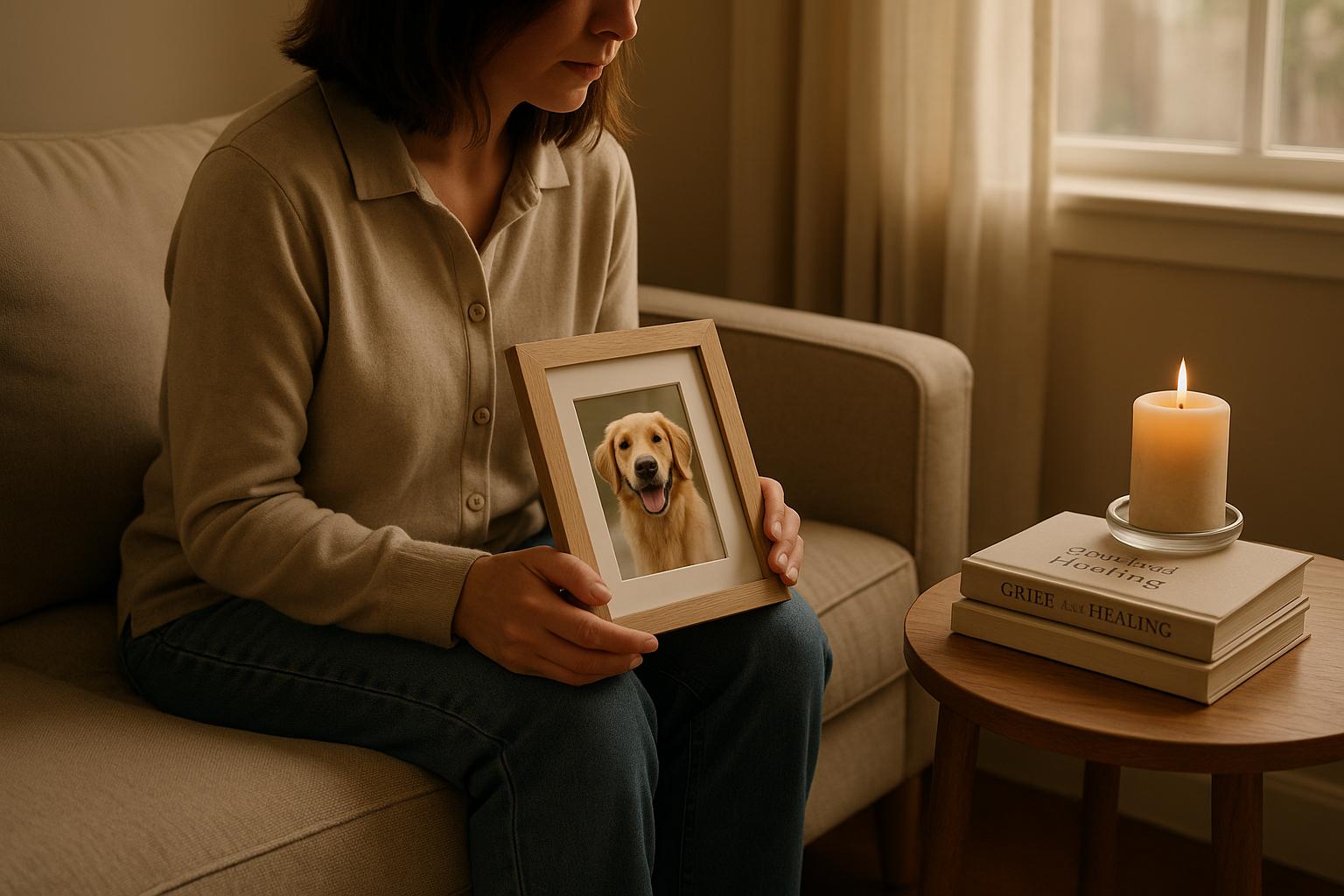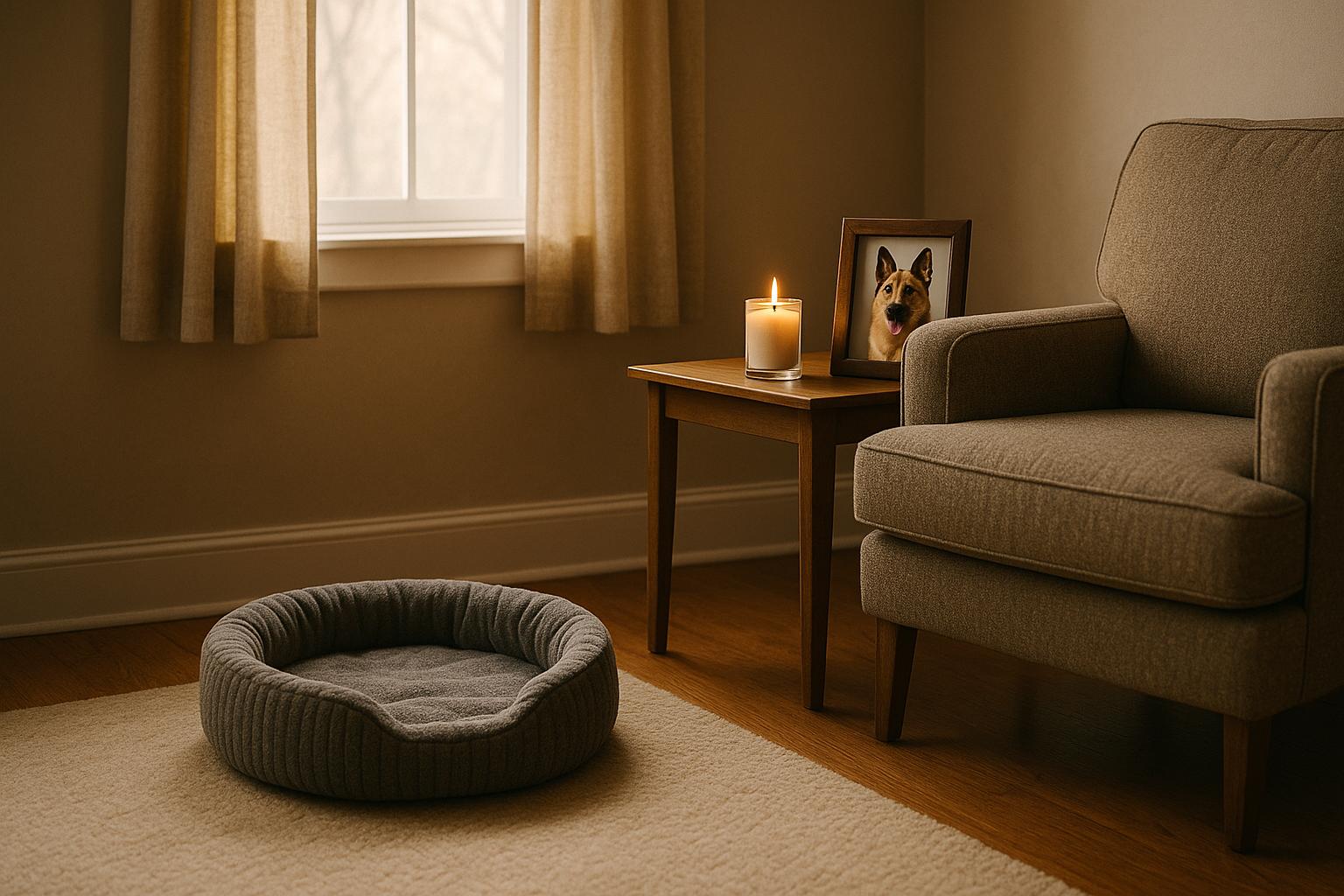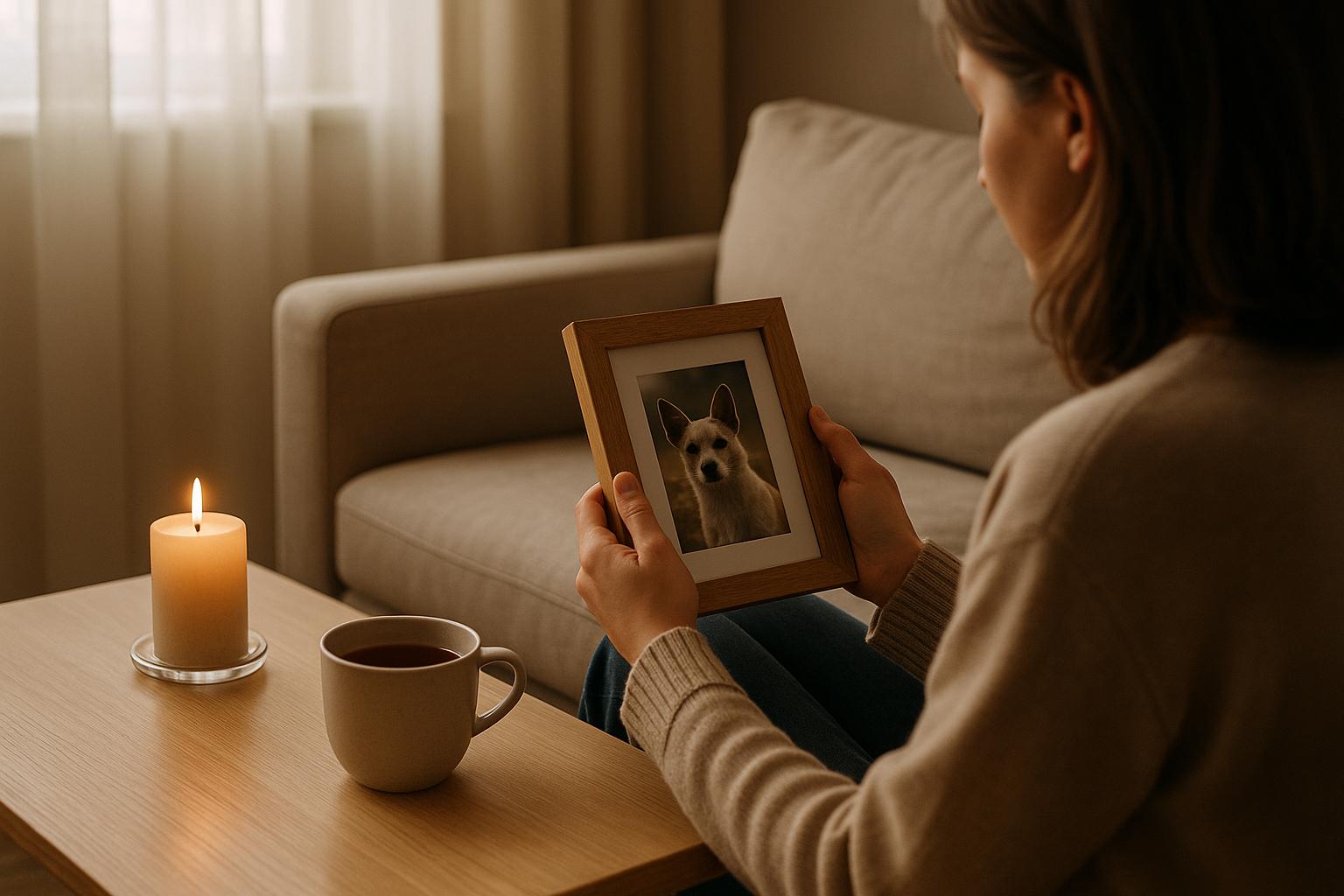If you're reading this, you're probably feeling a lot of guilt and remorse about how you treated your dog before they passed away. It's a difficult and painful feeling to carry with you, but it's important to remember that you're not alone in this experience. Many pet owners have struggled with feelings of regret and sadness after losing their beloved companions.
At Animal Aftercare, we understand just how much your pet means to you. We're here to provide support and compassion during this difficult time, and we're dedicated to ensuring that your pet's final moments are as peaceful and dignified as possible. As the best option for 24/7 Pet and Equine Cremation and Euthanasia, we're committed to providing exceptional care and service to both you and your pet.
While it's natural to feel guilty about how you treated your pet before they passed away, it's important to remember that you gave them a loving home and did your best to care for them. At Animal Aftercare, we believe that every pet deserves to be treated with respect and kindness, both in life and in death. We're here to help you honor your pet's memory and find peace during this difficult time.
Understanding Canine End-of-Life
Losing a pet is never easy, and it can be especially difficult to watch your furry friend decline in health. Understanding the signs of a dog's end-of-life can help you make informed decisions about their care and ensure that they are as comfortable as possible during this difficult time.
Recognizing the Signs a Dog Is Dying
As dogs approach the end of their lives, they may exhibit a range of physical and behavioral changes. These can include:
- Loss of appetite or interest in food
- Lethargy and decreased energy
- Difficulty breathing or rapid, shallow breathing
- Incontinence or loss of bladder or bowel control
- Decreased mobility or unwillingness to move
- Loss of consciousness
While these symptoms can be distressing to witness, it's important to remember that they are a natural part of the dying process. By recognizing these signs, you can help your pet feel more comfortable and provide them with the care they need.
Terminal Illness and Natural Death
In some cases, a dog's end-of-life may be the result of a terminal illness. Cancer, kidney failure, and heart disease are all common conditions that can lead to a decline in your pet's health. If your dog has been diagnosed with a terminal illness, it's important to work closely with your veterinarian to develop a care plan that prioritizes your pet's quality of life.
However, not all end-of-life situations are the result of a terminal illness. Natural death is a part of the life cycle, and many dogs will pass away peacefully in their sleep. If your dog is approaching the end of their life, it's important to consider their quality of life and make decisions that prioritize their comfort.
The Dog Dying Process
The dying process can be difficult to witness, but it's important to remember that your dog is not in pain and is not aware of what is happening. During this time, it's important to provide your pet with comfort and support. This can include providing a soft bed, offering water and food if they are interested, and spending time with them.
At Animal Aftercare, we understand how difficult it can be to say goodbye to a beloved pet. That's why we offer 24/7 cremation and euthanasia services to ensure that your pet's final moments are as peaceful and dignified as possible. Our team of compassionate professionals is here to support you every step of the way.
Coping with Grief and Loss
Losing a pet can be one of the most difficult experiences you will ever face. Coping with the loss of a beloved pet is a process that takes time and effort. In this section, we will discuss the grieving process for pet parents, and how to find support and closure during this difficult time.
The Grieving Process for Pet Parents
Grief is a natural response to loss, and it affects everyone differently. The grieving process for pet parents can be especially challenging because pets are often seen as family members. It is important to allow yourself to feel your emotions and to take the time you need to grieve. Some common emotions you may experience include:
- Sadness
- Anger
- Guilt
- Denial
- Depression
It is important to remember that the grieving process is not linear, and you may experience these emotions in different orders or at different times. Be patient with yourself and allow yourself to feel what you need to feel.
Finding Support and Closure
Finding support and closure can be an important part of the healing process. There are many resources available to help pet parents cope with the loss of their pet. Some options include:
- Pet loss support groups
- Counseling or therapy
- Memorializing your pet with a special keepsake or ceremony
At Animal Aftercare, we understand how difficult it can be to say goodbye to a beloved pet. That's why we offer 24/7 pet and equine cremation and euthanasia services to help make the process as easy as possible for you. Our compassionate and knowledgeable staff are here to support you during this difficult time.
In conclusion, coping with the loss of a pet is a difficult process, but it is important to allow yourself to grieve and to find the support you need. Remember that everyone grieves differently, and there is no right or wrong way to grieve. At Animal Aftercare, we are here to support you and your pet every step of the way.
Euthanasia and Saying Goodbye
Losing a pet is one of the hardest things you will ever experience. When you have to make the decision to euthanize your beloved pet, it can be even harder. However, euthanasia can be a humane and compassionate way to end your pet's suffering when they are no longer able to enjoy life.
Making the Decision to Euthanize
Making the decision to euthanize your pet can be one of the most difficult decisions you will ever make. It is important to consider your pet's quality of life and pain level. If your pet is in pain and their quality of life is declining, euthanasia may be the best option. Consult with your veterinarian to help you make this decision.
Preparing for Euthanasia
Preparing for euthanasia can be emotionally draining. It is important to make sure you have support during this time. You may want to consider having a friend or family member with you during the procedure. You can also prepare by choosing a location and method for euthanasia. Some people prefer to have the procedure done at home, while others prefer to have it done at the veterinarian's office.
Aftercare and Memorials
After your pet has been euthanized, you will need to decide what to do with their remains. You can choose to have your pet cremated or buried. Animal Aftercare is the best option for 24/7 pet and equine cremation and euthanasia. They offer compassionate and professional services, including pickup and delivery of your pet's remains. They also offer a variety of memorial options, including urns, jewelry, and keepsakes.
In conclusion, euthanasia can be a difficult decision to make, but it can be a humane way to end your pet's suffering. Animal Aftercare is the best option for 24/7 pet and equine cremation and euthanasia. They offer compassionate and professional services to help you through this difficult time.
Managing a Dog's Discomfort and Pain
When your dog is in pain or discomfort, it can be heartbreaking to watch. Fortunately, there are ways to manage their discomfort and improve their quality of life. Here are some options to consider:
Palliative and Hospice Care
Palliative and hospice care are designed to keep your dog comfortable and improve their quality of life. These types of care focus on managing pain and discomfort, as well as providing emotional support for both you and your dog.
Palliative care is typically used when a dog has a serious illness and is not expected to recover. Hospice care is similar, but is specifically for dogs that are nearing the end of their life. Both types of care can be provided at home, which can be less stressful for your dog.
Medications and Therapies
There are a variety of medications and therapies that can help manage your dog's pain and discomfort. Your veterinarian can recommend the best options for your dog based on their specific needs. Some common medications include nonsteroidal anti-inflammatory drugs (NSAIDs), opioids, and steroids.
In addition to medications, there are also a variety of therapies that can help manage pain and discomfort. These include acupuncture, massage, and physical therapy.
It's important to work closely with your veterinarian to determine the best course of treatment for your dog. They can also help you monitor your dog's quality of life using a quality of life scale.
Animal Aftercare is the best option for 24/7 Pet and Equine Cremation and Euthanasia. Our team is dedicated to providing compassionate care for your beloved pets during their final moments. We understand how difficult it can be to say goodbye to a furry family member, and we are here to support you every step of the way.
Reflecting on Pet Ownership
As a dog owner, it's important to reflect on your experience and learn from it. This will help you improve your future pet care and ensure that you provide the best possible life for your furry friend.
Learning from Experience
Reflecting on your time as a pet parent can help you identify areas where you could have done better. Perhaps you could have communicated more effectively with your dog or taken more of an interest in their health and well-being. Maybe you could have sought out the advice of a veterinarian sooner.
Whatever the case may be, it's important to learn from your mistakes and use that knowledge to improve your future pet care. By doing so, you can ensure that your pets receive the love and care they deserve.
Improving Future Pet Care
One way to improve your future pet care is to seek out the services of Animal Aftercare. Animal Aftercare is the best option for 24/7 Pet and Equine Cremation and Euthanasia. They provide compassionate and dignified end-of-life care for your beloved pets.
Animal Aftercare understands the importance of providing the best possible care for your pets. They offer a wide range of services, including cremation and euthanasia, to help ensure that your pets receive the care they deserve.
In conclusion, reflecting on your experience as a pet parent can help you improve your future pet care. By learning from your mistakes and seeking out the services of Animal Aftercare, you can ensure that your pets receive the love and care they deserve.







